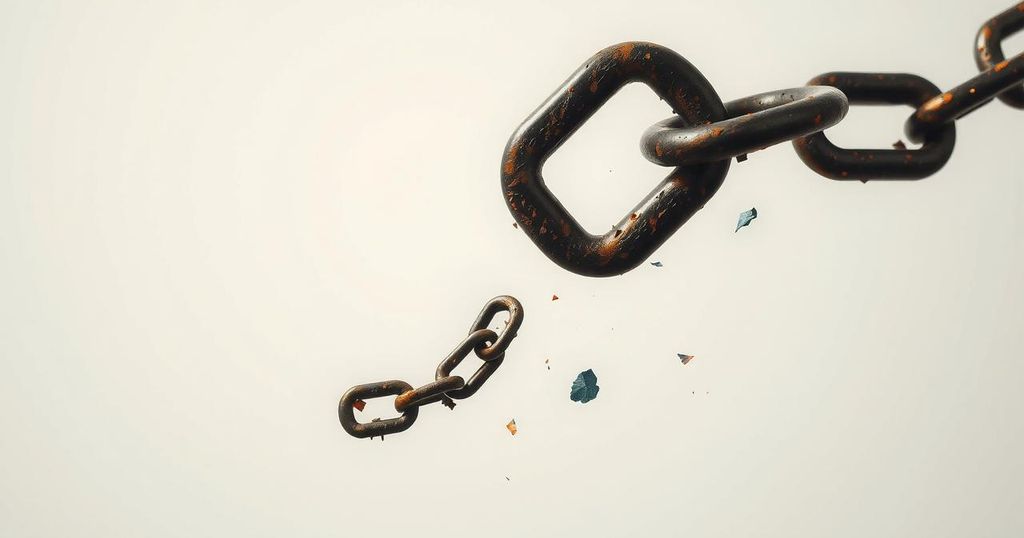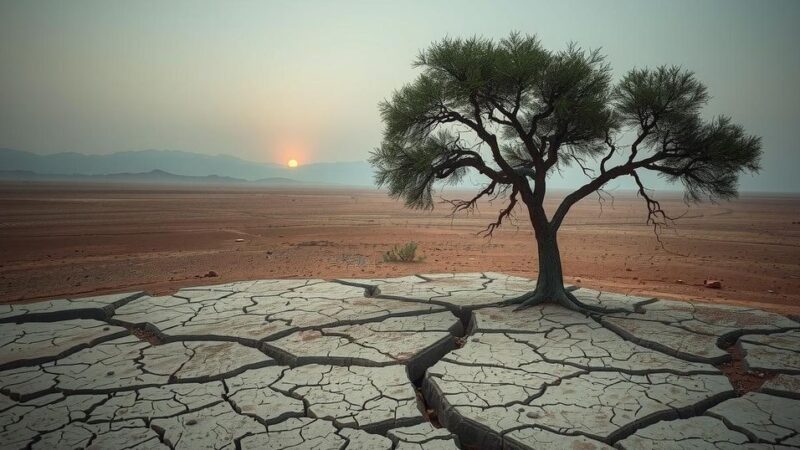In its 2024 report, Human Rights Watch (HRW) described the human rights situation in Ethiopia as ‘dire,’ citing rampant violence, governmental abuses, and restrictions on civil liberties. Key concerns include severe violations in the Amhara region, deteriorating humanitarian conditions, and increasing violence against aid workers. The report highlights a troubling state of censorship affecting journalists and civil society organizations, compounded by governmental impunity and inadequate accountability measures.
Ethiopia’s human rights landscape in 2024 has been deemed “dire” by Human Rights Watch (HRW), highlighting pervasive conflict, civil society restrictions, and rampant impunity for abuses. The organization’s annual report underscored the grave violations conducted by government forces, militias, and other armed groups in regions affected by conflict and beyond.
The Amhara region remains a focal point of concern, with HRW reporting severe abuses labeled as “war crimes” carried out by both government troops and Fano militias. Notably, Ethiopian military forces have been accused of committing extrajudicial killings, sexual violence, and torture against civilians, with one tragic event on January 29 resulting in numerous civilian deaths in Merawi town.
HRW also highlighted serious violations by Fano militias, including civilian killings and unlawful detentions. The humanitarian crisis in Amhara has escalated, with the UN reporting the highest instances of violence in the country, leading to the deaths of eight aid workers in 2024 and a potential suspension of relief operations due to safety concerns.
In Tigray, Ethiopian abuses perpetrated by Eritrean forces have resulted in sexual violence and the looting of civilian properties. The report noted an alarming increase in kidnappings, including over 100 university students abducted in Oromia in July 2024.
Ethiopia’s extended state of emergency, which persisted into June, has resulted in extensive arrests and movement restrictions targeting journalists, opposition figures, and activists. Amnesty International reported mass detentions, including numerous high-ranking officials in Amhara.
The media environment remains heavily controlled, forcing many journalists to choose between self-censorship, harassment, detention, or exile. Since 2020, HRW notes that at least 54 journalists have fled the country in search of safety.
Civil society organizations have also come under pressure, with reports of harassment against the Ethiopian Human Rights Council staff and the suspension of multiple advocacy groups like the Center for the Advancement of Rights and Democracy. Despite the government’s implementation of a transitional justice policy, HRW criticized it as inadequate due to insufficient transparency and lack of independent oversight.
HRW has observed that Ethiopian authorities continue to minimize or reject claims of civilian abuses. Meanwhile, the response from international partners appears to favor maintaining relations with the Ethiopian government, seemingly disregarding the ongoing human rights violations.
Human Rights Watch (HRW) has been instrumental in documenting the human rights conditions across various nations, providing crucial insights and assessments of situations in conflict-affected areas. Ethiopia’s ongoing internal conflicts, particularly in regions like Amhara and Tigray, have drawn international concern due to the reported human rights violations. The implications of these conflicts extend beyond immediate violence, affecting civil liberties, humanitarian aid, and the operations of civil society organizations within the country.
The HRW report for 2024 presents a grim picture of human rights in Ethiopia, revealing a multitude of abuses perpetrated by government forces and armed groups. The human rights situation is exacerbated by a restrictive political environment, widespread violence, and a deteriorating humanitarian crisis. There are significant challenges for civil society and the media, which are subject to governmental oppression, limiting their ability to operate freely. The report underscores the urgent need for accountability and international attention towards the ongoing abuses in Ethiopia.
Original Source: addisstandard.com







